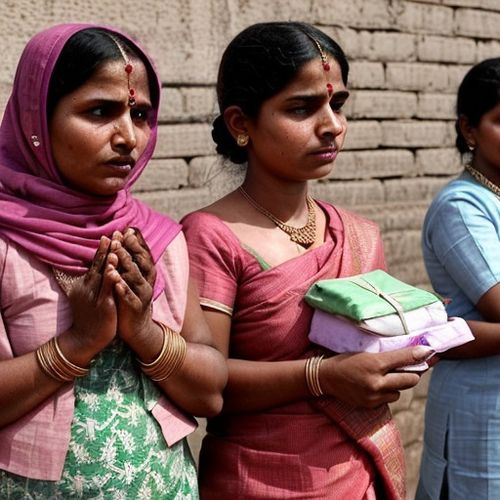Israel has long been recognized as a global leader in reproductive technologies, with its surrogacy laws reflecting both progressive medical practices and complex sociopolitical considerations. The country's approach to gestational surrogacy balances religious values, ethical concerns, and LGBTQ+ rights within a legal framework that continues to evolve. Unlike many nations that ban commercial surrogacy outright or impose extreme restrictions, Israel's system operates under government supervision while allowing compensation for surrogates.
The legal foundation of Israeli surrogacy traces back to the 1996 Embryo Carrying Agreements Law, which made Israel the first country to regulate surrogacy through comprehensive legislation. This law established strict criteria for all parties involved: intended parents must prove medical infertility, surrogates must be single or divorced (married women were initially barred to avoid complications with Jewish marital laws), and all contracts require approval from a state-appointed committee. The religious influence remains palpable - Orthodox Jewish authorities insisted that the surrogate not be the biological mother to avoid questions about the child's lineage under halakhic law.
Recent years witnessed dramatic shifts as Israel's Supreme Court struck down portions of the surrogacy law in 2021, declaring the exclusion of same-sex couples and single men unconstitutional. This landmark decision forced the Knesset to amend the legislation, expanding access to surrogacy for gay couples after decades of heated debate. The revised law still maintains Israel's unique hybrid model where commercial surrogacy is permitted but tightly controlled, distinguishing it from purely altruistic systems like the UK's or outright commercial markets like California's.
Practical implementation involves multiple layers of oversight. The Health Ministry's surrogacy approval committee scrutinizes each application over several months, evaluating psychological fitness, legal agreements, and medical readiness. All surrogacy contracts must specify compensation (averaging $40,000-$60,000), medical coverage, and life insurance for the surrogate. Intriguingly, Israeli law grants the surrogate parental rights at birth, requiring intended parents to undergo a court-ordered adoption process even when using their own genetic material - a safeguard against potential coercion.
International surrogacy creates additional complexities under Israeli law. While the government recognizes children born through overseas surrogacy arrangements, bureaucratic hurdles often leave same-sex couples stranded abroad for months securing citizenship documentation. This paradox highlights the tension between Israel's advanced domestic policies and its cautious approach to cross-border reproductive care. The lack of bilateral agreements with popular surrogacy destinations like Georgia and the United States compounds these challenges.
Ethical debates continue swirling around Israel's surrogacy ecosystem. Feminist groups decry the potential exploitation of working-class surrogates, while religious conservatives oppose any dilution of traditional family structures. Yet the system's defenders point to rigorous protections: mandatory independent legal counsel for surrogates, age restrictions (21-38 years old), and prohibitions against agencies taking percentage-based commissions. The requirement that surrogates must have previously given birth aims to ensure informed consent about pregnancy risks.
Medical innovation intersects with these legal parameters in fascinating ways. Israel's fertility clinics have pioneered techniques for transporting embryos to foreign surrogates while complying with both Jewish law and international medical standards. Some Orthodox couples utilize "genetic surrogacy" where the intended mother's egg is implanted in the surrogate to maintain halakhic maternity lines. Such niche applications demonstrate how Israeli surrogacy law accommodates both cutting-edge science and ancient religious principles.
The economic dimensions reveal another layer of complexity. While Israeli surrogates receive compensation comparable to U.S. rates when adjusted for living costs, the state-supervised payment structure prevents bidding wars or financial coercion. Intended parents typically spend $70,000-$100,000 when accounting for medical procedures, legal fees, and agency costs - significantly less than equivalent U.S. arrangements but far more expensive than unregulated markets like Ukraine. This pricing reflects Israel's balance between accessibility and oversight.
Looking ahead, pending legislation may further transform Israel's surrogacy landscape. Proposed reforms include allowing married women to serve as surrogates, creating a national surrogacy registry, and streamlining international recognition processes. Meanwhile, advocacy groups push for expanded rights for surrogates regarding pregnancy termination decisions and postpartum support. As other nations grapple with surrogacy regulation, Israel's ongoing legal evolution offers a compelling case study in balancing reproductive rights, religious values, and child welfare concerns.
What emerges from examining Israeli surrogacy law is neither purely libertarian nor strictly prohibitive, but rather a uniquely Jewish approach to assisted reproduction - one that embraces technology while demanding communal oversight. The system's imperfections spark vigorous debate, yet its ability to adapt while maintaining ethical guardrails explains why Israel remains a destination for both domestic and international intended parents seeking a middle path between unregulated commercial markets and complete bans.

By Eric Ward/Apr 19, 2025

By Sophia Lewis/Apr 19, 2025

By George Bailey/Apr 19, 2025

By George Bailey/Apr 19, 2025

By Grace Cox/Apr 19, 2025

By Natalie Campbell/Apr 19, 2025

By Sarah Davis/Apr 19, 2025

By Michael Brown/Apr 19, 2025

By George Bailey/Apr 19, 2025

By Victoria Gonzalez/Apr 19, 2025

By Christopher Harris/Apr 19, 2025

By Natalie Campbell/Apr 19, 2025

By Sophia Lewis/Apr 19, 2025

By James Moore/Apr 19, 2025

By Natalie Campbell/Apr 19, 2025

By Emily Johnson/Apr 19, 2025

By James Moore/Apr 19, 2025

By Amanda Phillips/Apr 19, 2025

By Emily Johnson/Apr 19, 2025

By Noah Bell/Apr 19, 2025